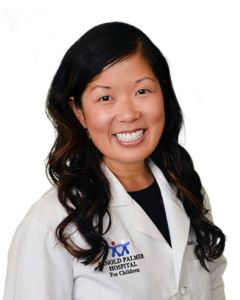The HPV Vaccine: Questions, Facts, and Misconceptions
What is HPV?
HPV stands for human papillomavirus, and these viruses are the most common sexually transmitted viruses in the United States. Most of the people who are diagnosed with HPV are young and sexually active. The rates of HPV infection are high because most people who have HPV do not know they are infected because sometimes the virus shows no symptoms. Most HPV infections show no symptoms, and resolve within two years. However, there are many different strains of the HPV virus, and there are high-risk strains (HPV types 16 and 18) that are associated with cervical, anal, mouth, and throat cancers.What is the HPV vaccine?
The HPV vaccine is a vaccine that can help protect your child against the high-risk forms of HPV that can cause cancer. It does not protect against every HPV strain (since there are more than 100), only 4 high-risk strains of HPV. The American Academy of Pediatrics recommends that girls AND boys receive the vaccine starting at ages 11-12. The vaccine is given three times over a period of six months. To receive the maximum amount of protection, your preteen should receive all three doses. The HPV vaccine can be given at the same time as other vaccines.Why should my child start receiving the HPV vaccine now? She’s so young!
Many parents ask this question, because they are unsure about giving their preteen a vaccine that protects them against a sexually transmitted infection when he or she is not engaging in sexual activity. Parents will ask if the vaccine can be delayed until their child decides to start having sex. HPV vaccines offer the maximum amount of protection for your child when they are given in all three doses BEFORE your child begins to have any sexual activity with somebody else. One study has shown that almost 80% of infected teenagers have contracted HPV within 2 to 3 years of the first time they engaged in sexual activity.Our bodies’ antibody response to the HPV vaccine is the highest between ages 9 and 15 years old. By immunizing your child during this recommended age AND before the onset of sexual activity, you are offering your child the maximum amount of protection against the high-risk forms of HPV that can cause cancer. Since it is very difficult to treat and for our own bodies to completely get rid of these high-risk HPV strains, prevention through vaccination is the key to protection.
That sounds great! So why doesn’t everybody vaccinate their child with the HPV vaccine?
Some parents are concerned that by giving this vaccine to their preteen, they are encouraging their child to engage in sexual activity. As pediatricians, we understand this concern and studies have shown that children who have received the HPV vaccine do not have sex any earlier than those who did not. This information can help reassure us that most preteens/teenagers do not see the vaccine as a green light to begin sexual activity at an earlier age.Other parents choose to decline the HPV vaccine for their preteen because they are concerned about its safety and side effects. The vaccine has a very good safety record, and as of last year, 57 million doses have been given and there have been no serious safety concerns. The most common side effect is pain or redness in the arm at the injection site. Some preteens can faint after any type of invasive procedure, so your doctor will probably ask that your preteen to sit and wait in the office for about 15 minutes after receiving the shot.
If HPV causes cervical cancer, why should my son get the vaccine?
In 2011, the CDC recommended that the HPV vaccine should be used routinely in males. A male obviously cannot get cervical cancer, but the HPV vaccine can help prevent genital warts and cancers of the mouth, throat, and anus, and genitals. A boy who is vaccinated can also help protect his future partner. Women receive cervical cancer screening, but since HPV can be asymptomatic and men don’t undergo routine screening for infection, a man who is infected can unknowingly pass HPV to his partner.My teenager is sexually active, but has not received the HPV vaccine yet. Should he or she still receive it?
YES. If a person is sexually active and possibly infected with an HPV strain, the HPV vaccine will not provide any protection against any strains present in the body prior to vaccination. However, somebody who is infected with one HPV strain should still receive the HPV vaccine, because it may still offer protection against remaining strains of HPV.How long do the protective effects of the HPV vaccine last?
A very recent study that will be published in the September 2014 issue of the journal Pediatrics has concluded that the HPV vaccine is still effective 8 years after initial vaccination. Among the preteens and adolescents who received the vaccine at age 12, none of them developed disease caused by the HPV types that are covered by the vaccine. Based on the results of this study, we as parents and pediatricians should support the national recommendation to vaccinate all preadolescents and young adolescents to reduce HPV-related cancers. As a pediatrician, I fully support HPV vaccination because I want to help protect your child against HPV-related cancer. Currently, the national HPV vaccination rate is only 33%, and approximately 4,400 women will be diagnosed with cervical cancer this year.When my children reach the recommended age, both of them (boy and girl) will receive all three doses of the HPV vaccine. As parents, we all want to protect our children, and I am definitely not passing up on an opportunity to protect my children against HPV-related cancers in the future.







